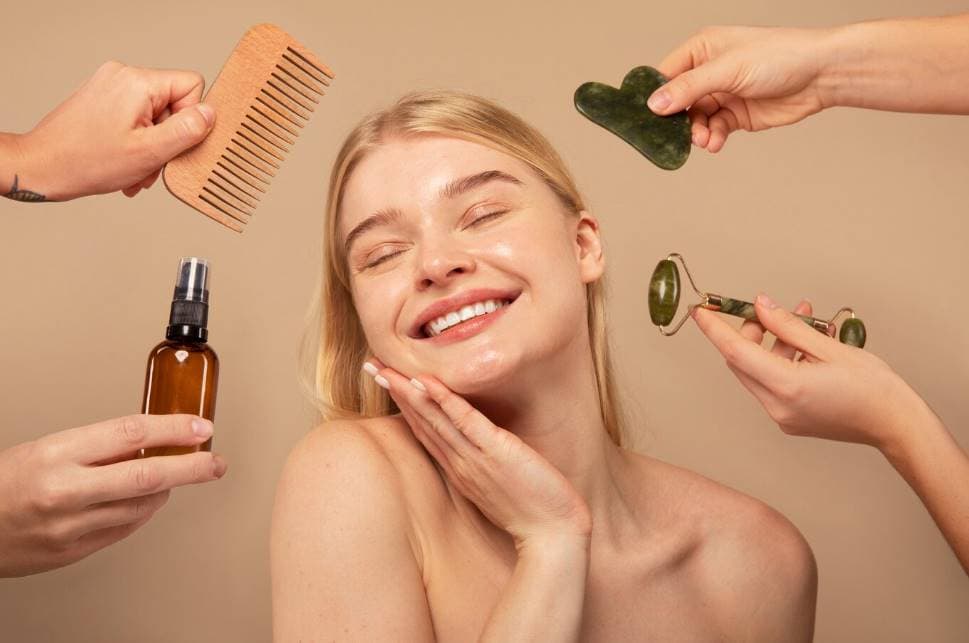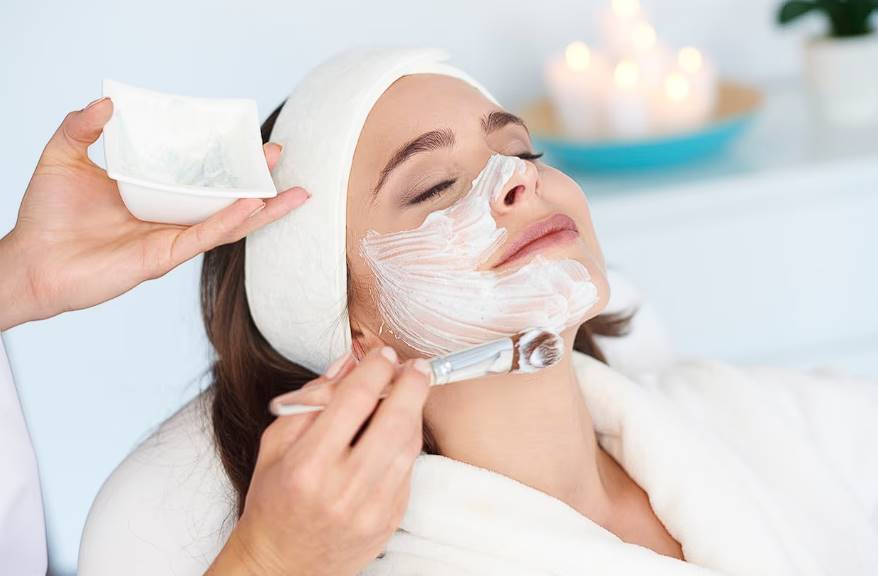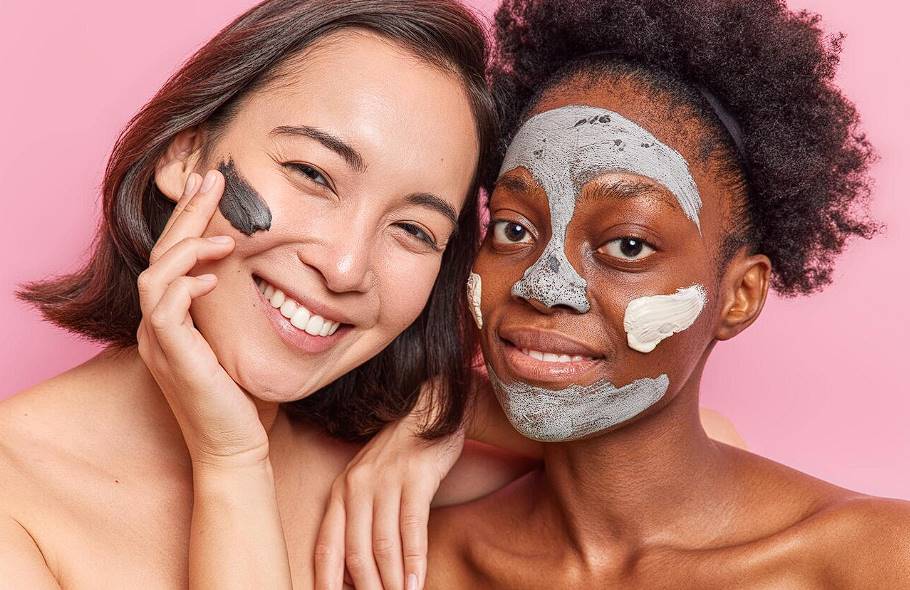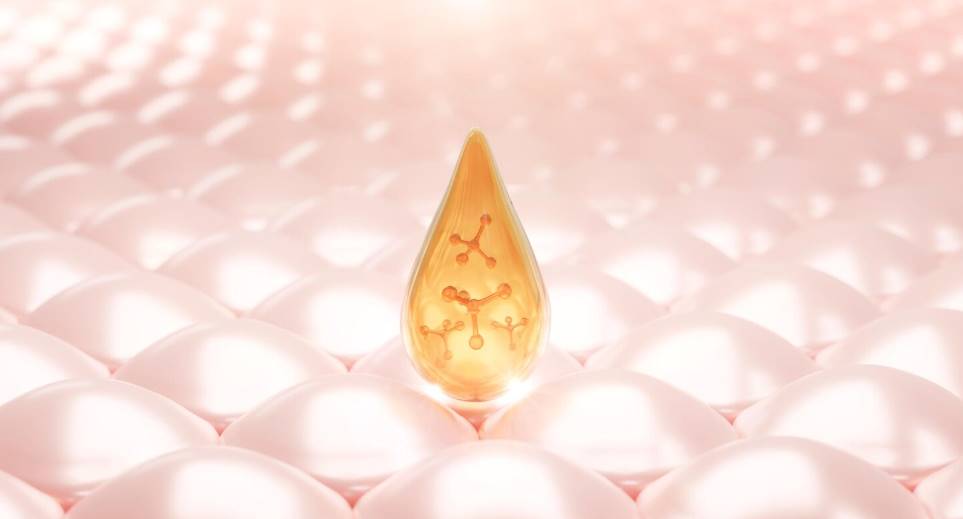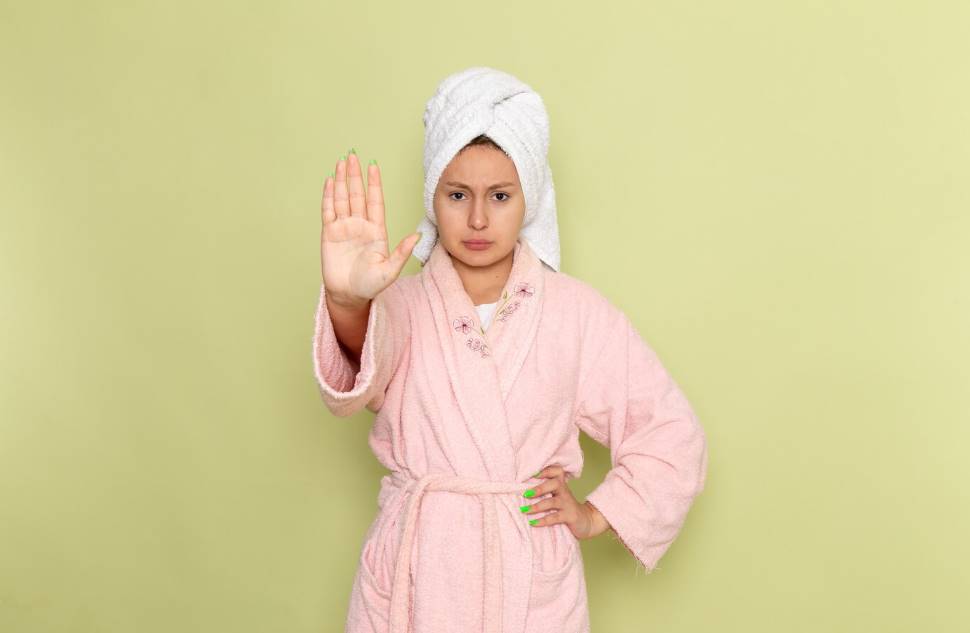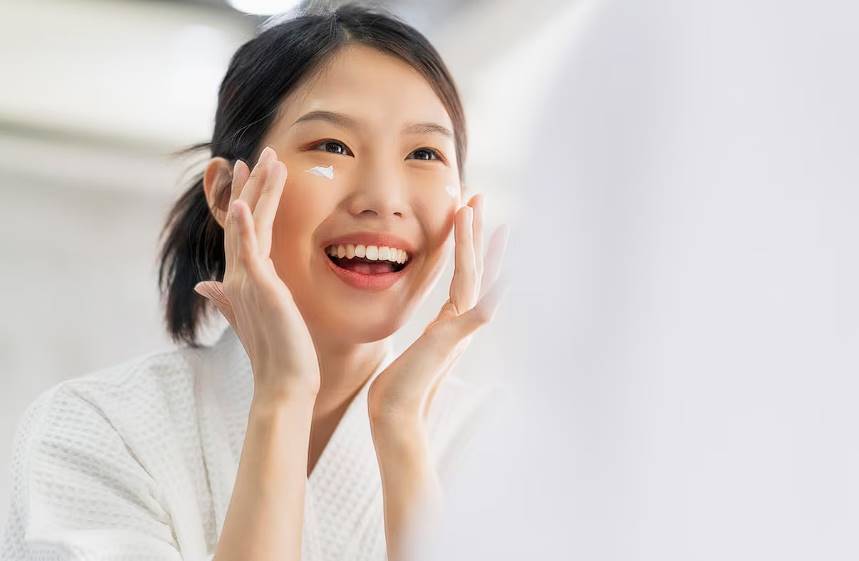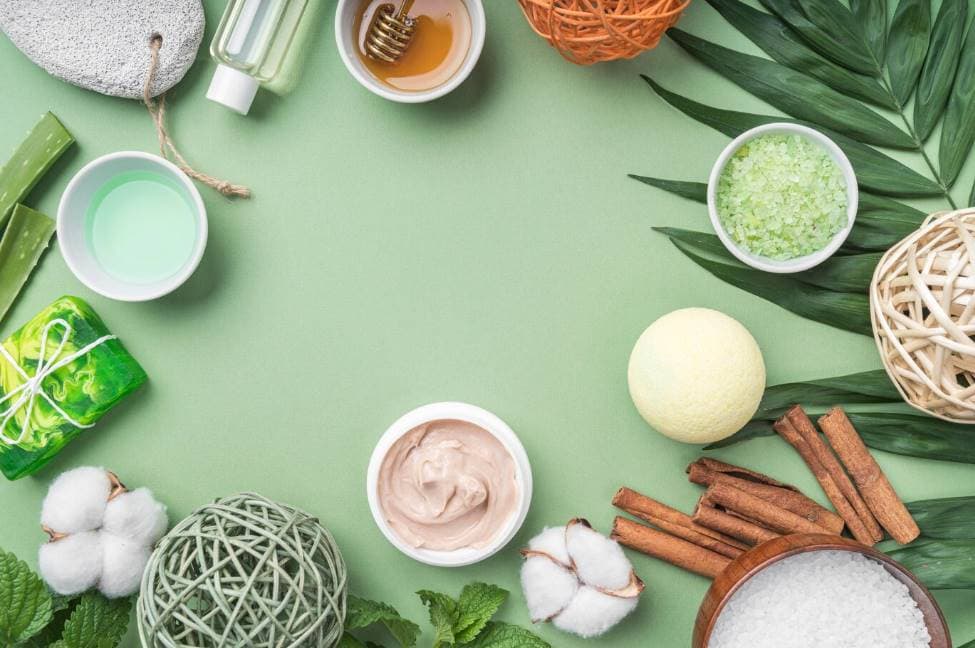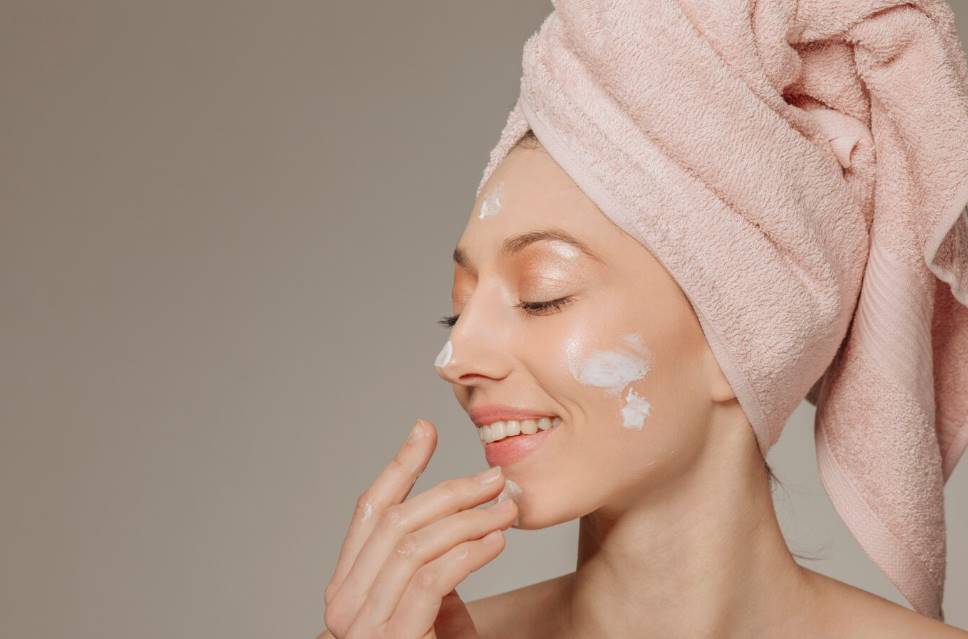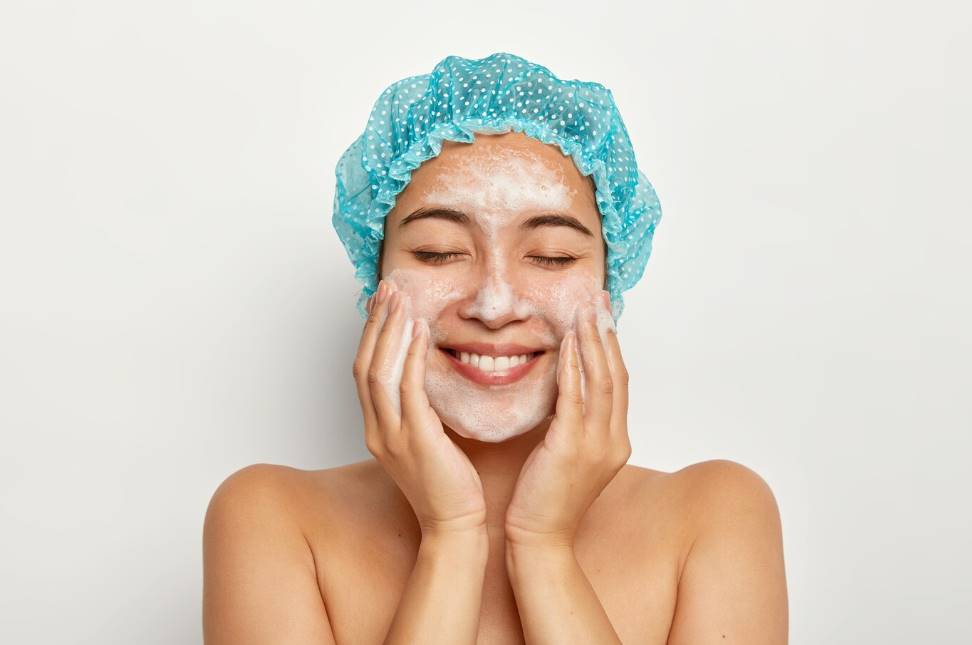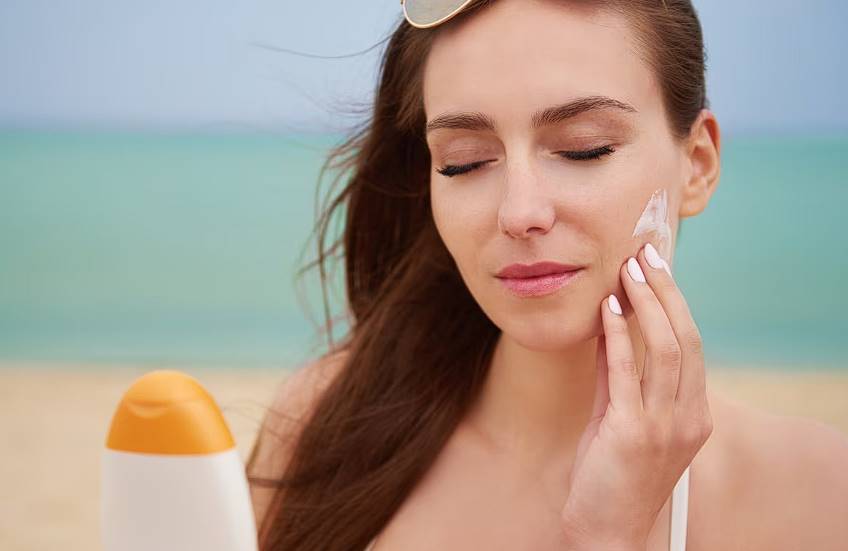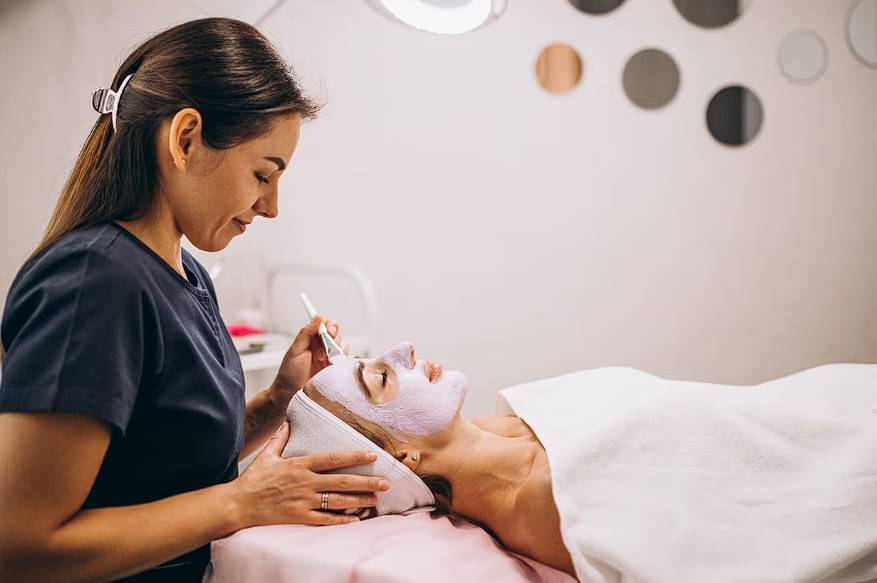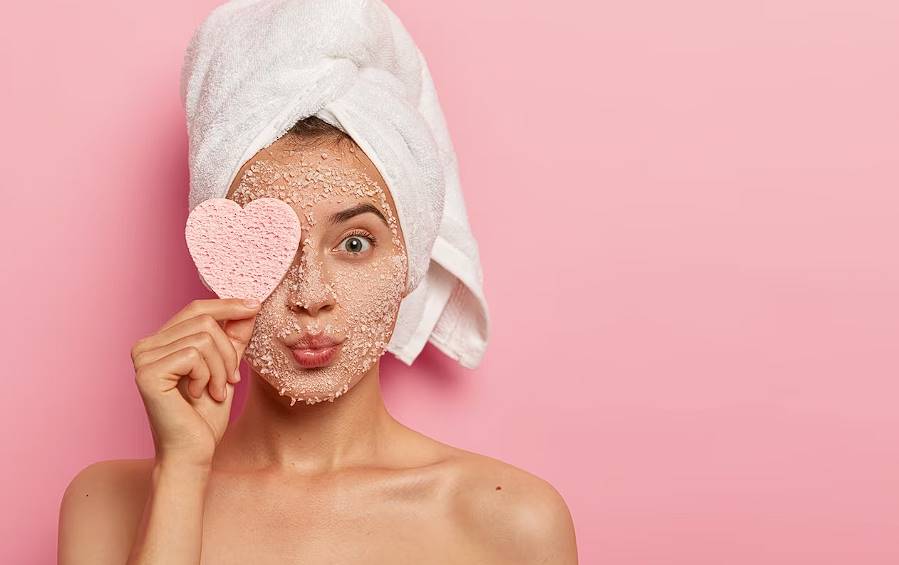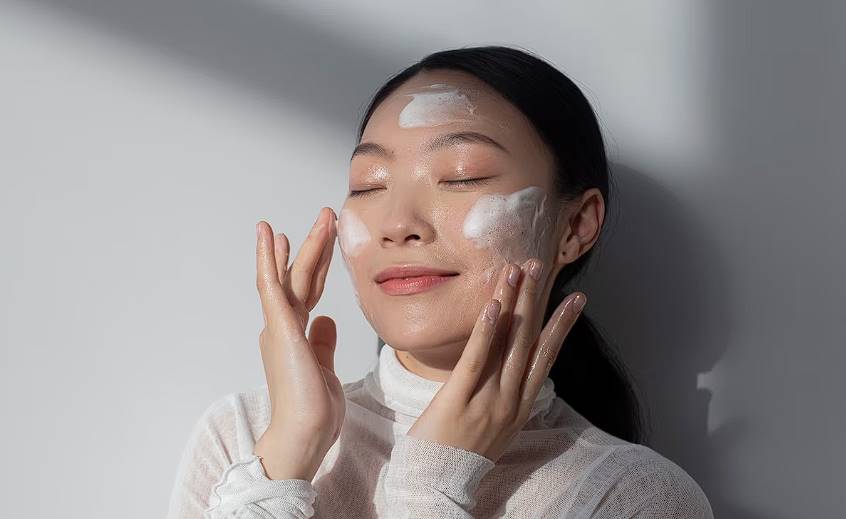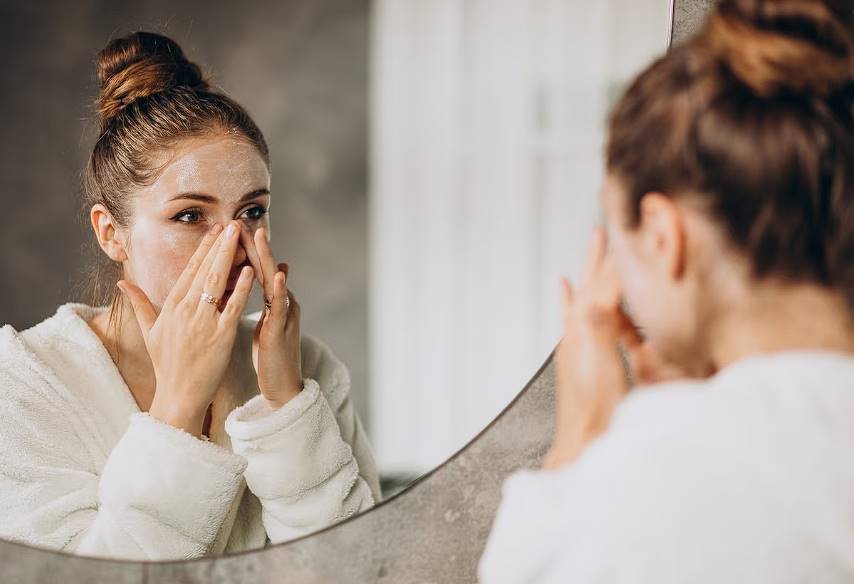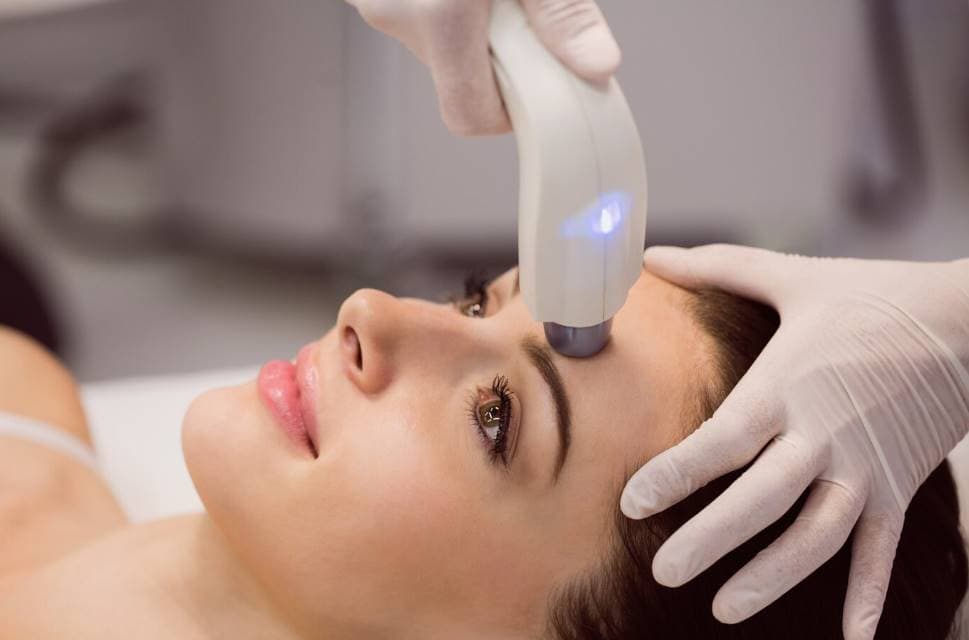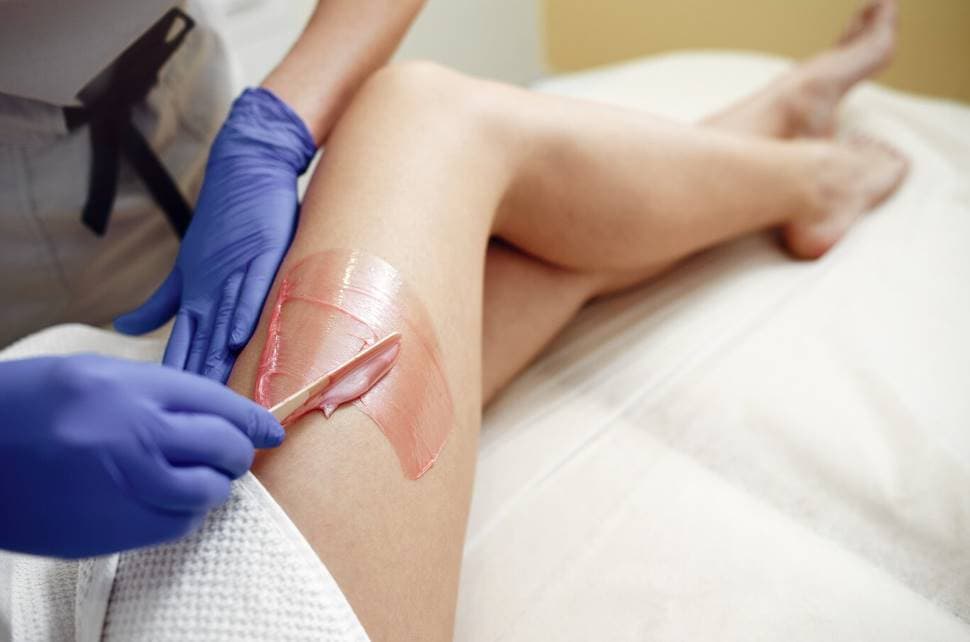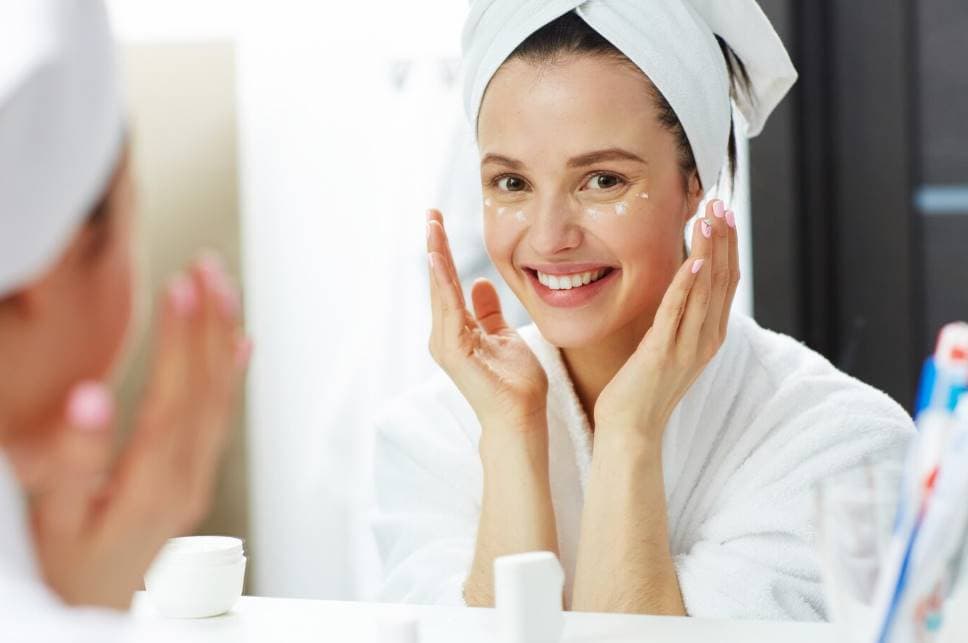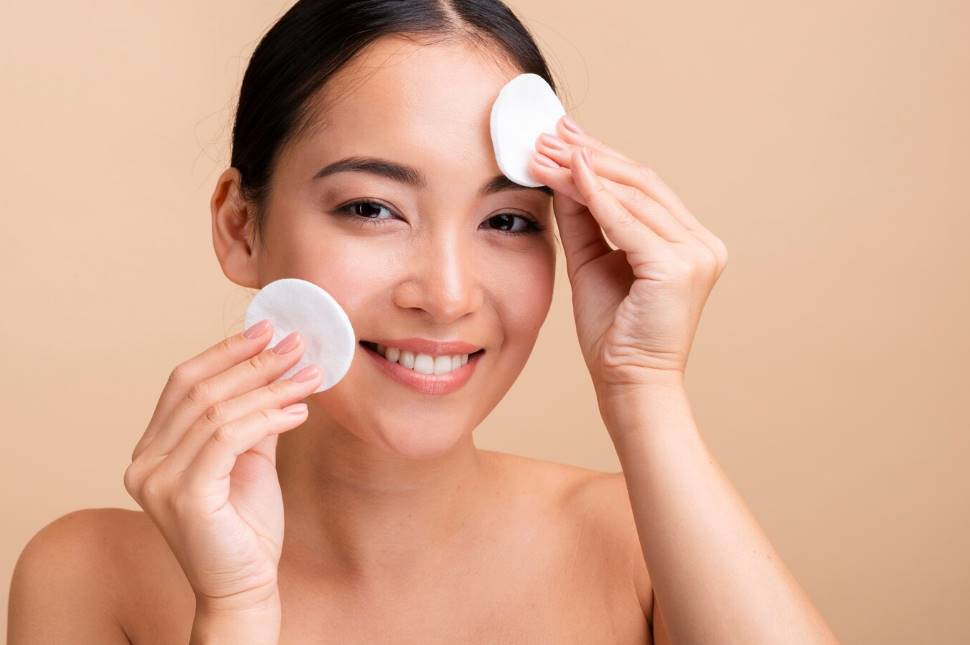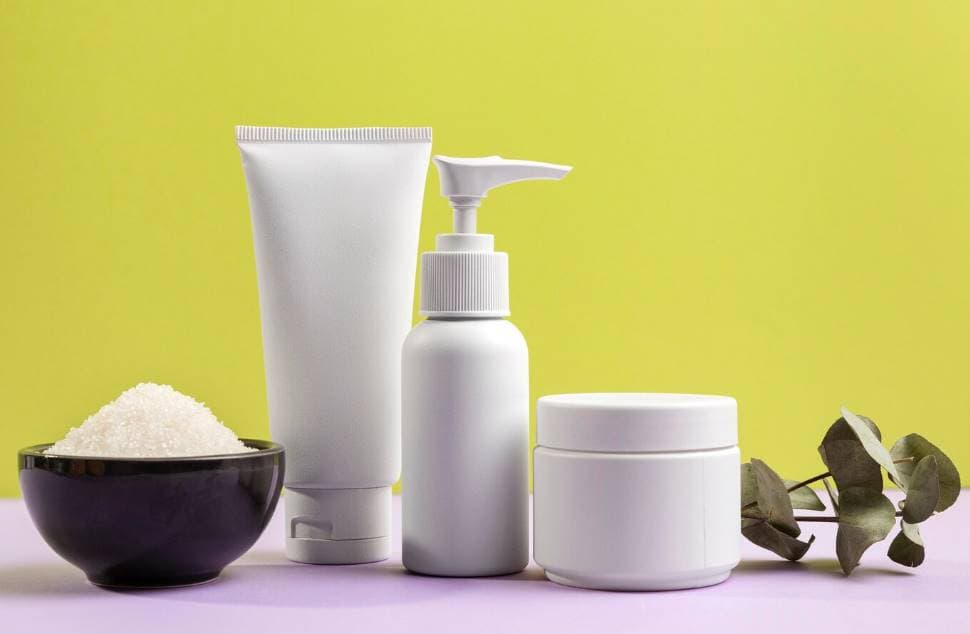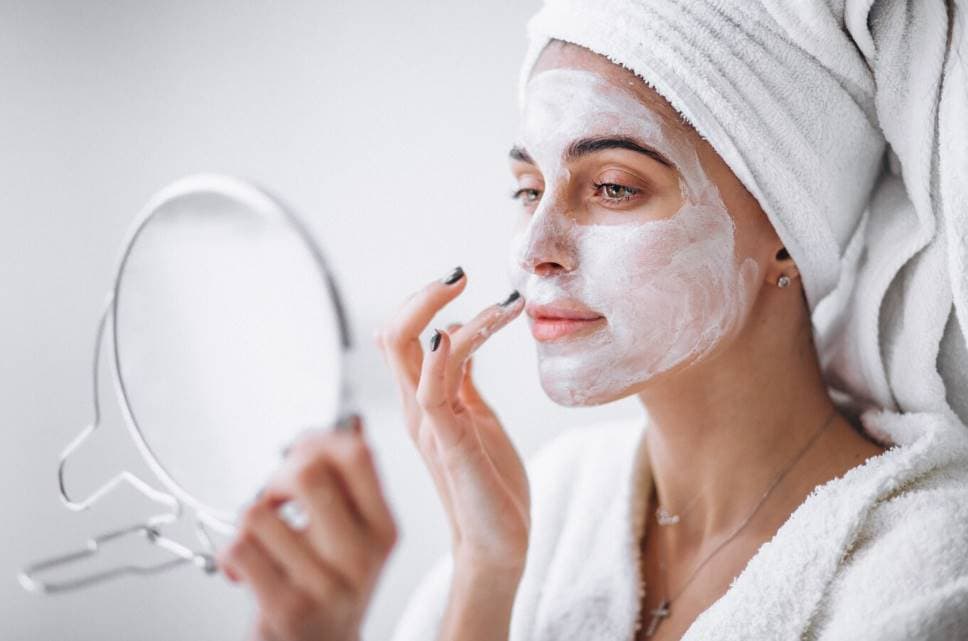Most people only give a little thought to staying hydrated once they feel parched. Do you have any skin issues? OK, that explains it. Drinking plenty of water throughout the day is essential for skin health, as is being careful about what you put on your skin. Nonetheless, hydration is different from moisturising. Each one accomplishes a unique goal. This article will provide helpful suggestions and an explanation of why it's important to drink enough water every day.
Hydration: Why Is It Important?
The skin is the biggest organ and is a protective barrier from the environment. The lipids in your body hold together the several layers of skin cells that make up this barrier. In addition to retaining moisture, lipids also block the entry of harmful chemicals and pollutants from the outside world. Adequately hydrated skin appears full and feels smooth. It can look flaky, dry, or wrinkled when it isn't. Dry skin is not only irritating, but it also increases your risk of skin irritation and infection.
Furthermore, dehydration might exacerbate preexisting skin issues. For those who suffer from eczema, for instance, dehydration might bring on an outbreak. If you suffer from acne, dehydration can make your face oilier and increase the frequency of outbreaks. Maintaining proper hydration requires careful attention to both fluid intake and food intake. Skincare is another method.
The high water content of fruits and vegetables makes them ideal for internal skin hydration. Eating a balanced, fresh diet is one of the finest things you can do for your skin and overall health.
What Is The Body's Process Of Hydration?
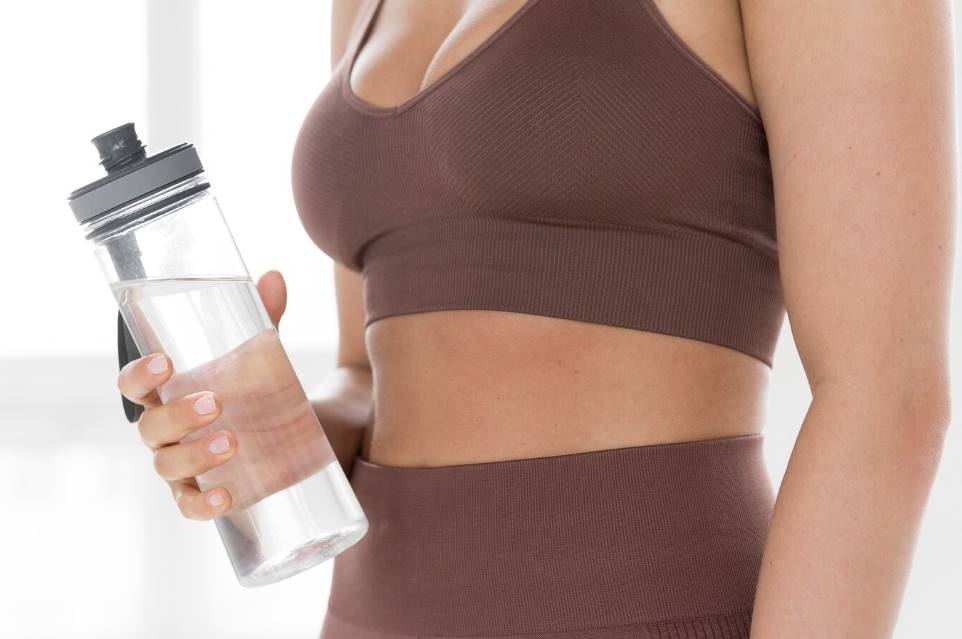
On average, water makes up 60 per cent of the human body and is crucial to everyday bodily processes. Every body function relies on water, from keeping the temperature steady to breaking down food. Water also aids in removing waste products from the body and delivering oxygen and nutrients to cells. Dehydration hinders the body's ability to carry out these activities, which might worsen health in the long run.
Thirst and urine are the two primary ways your body removes excess water. Urination happens when the kidneys remove extra fluid from the blood and transport it to the bladder, while thirst is the body's signal that it needs water.
Most people rely on their thirst as their primary means of hydration, but more is needed. Sweating causes significant fluid loss, especially during strenuous physical activity or high temperatures. Drink water even if you're not thirsty to avoid dehydration in these conditions.
Mechanisms of action such as aldosterone regulate the amount of water the body excretes in the urine, which aids in maintaining hydration levels.
How Can Being Hydrated Aid With Skin Problems?
Hydration is a key factor in lowering the incidence of skin problems. Acne, dullness, wrinkles, and sagging skin can all be avoided or remedied by taking good care of the skin's moisture levels. Here are some of how water can assist your skin:
Acne
Dead skin cells accumulate in the pores due to dry, chapped skin. Blackheads and even pustules (active acne) occur when dead skin cells combine with sebum and solidify. Keeping the skin well-hydrated is a great way to prevent this issue. Properly hydrated skin is not as likely to see a significant increase in pore size.
Wrinkles And Fine Lines
Keeping the skin moisturised is a key step in warding off the development of wrinkles and fine lines. When your skin is soft and pliable, it resists laxity and fine-line development. Hydrated skin can better hold onto moisture, contributing to a more youthful appearance.
Dullness
Dullness is accentuated by dryness of the skin. The rosy glow disappears as the skin is dry. The dryness and uneven look only serve to emphasise the dullness.
Sagging Skin
Sagging skin is an obvious indicator of becoming older. When the skin is dry, the process speeds up. As we age, our skin loses its elasticity and begins to sag.
How To Keep Your Skin Hydrated
Although drinking plenty of water will assist your skin to retain moisture, the water may take some time to reach your skin cells if you do it internally rather than topically.
Select The Components That Aid In Hydrating Your Skin
If you want your skin to be as hydrated as possible, you must hunt for certain components. While searching for topical skin care products, keep an eye out for these ingredients:
Sodium Hyaluronate
Sodium hyaluronate can penetrate the epidermis to aid the skin's general hydration. Adding this ingredient to facewash means you can wash your face without worrying about irritation or dryness.
Ceramides
Ceramides are essential for skin function, but your body naturally produces fewer as you age. Maximising skin elasticity through topical use of ceramide-rich products. Ceramides help the skin stay supple by preventing it from drying out. Moisturiser is a top-tier option among emollients that contain ceramides. It's non-greasy, applies easily, and strengthens the skin's natural defences.
Glycerine
Glycerine is a common component of hydrating skin care products due to its powerful moisturising properties. It acts as a humectant, attracting moisture from the air to moisten your skin. It has been used for quite some time for its intended purpose, which is to keep the skin adequately hydrated.
Panthenol
This helps reduce inflammation and speed up the skin's natural healing process, making scars less noticeable. Acne scars and other imperfections are more noticeable on dry skin, but panthenol helps with that, too.
Niacinamide
Niacinamide, often known as vitamin B3, helps to fortify the skin's natural defences. It aids in retaining moisture and halting the drying out of the skin. It prevents sunburn and the associated skin dryness. Sunscreen and other niacinamide skincare products help prevent hyperpigmentation and minimise oil production.
Olive Oil
Olive oil is often used as a natural skin moisturiser. When compared to squalene, hydrogenated olive oil is four times more moisturising. Because of this, you can trust that any product containing this component will help your skin retain its youthful appearance and health.
Maintaining a youthful appearance requires always keeping the skin well-hydrated. Well-hydrated skin keeps looking fresh and firm for much longer. It will look great for years if you take care of your skin using the best products and practices.
Don't Use Beauty Products Containing Drying Ingredients
You now know what to use to keep your skin supple and hydrated. However, if you're also utilising substances that dry out your skin, there's little use in using these! Many compounds are known to remove the skin's natural barrier. This has the opposite effect of what you'd expect and accelerates the pace at which moisture evaporates from the skin, leaving it dry.
Sulphates, parabens, and certain alcohols are major offenders. Although you may find them in other skincare products, cleansers are where you're most likely to find them together.
Check the product's component list before your next cleansing. Look for a milder solution if you see any of the above drying components. Its washing agents are not only extremely gentle but also made from coconuts, so they have a calming effect on the skin. Better yet, this cleanser contains several humectants and amino acids to revive the appearance of dry, dull skin.
Keep Your Skin Safe From The Sun
Certain substances can cause your skin's protective barrier to break down, leading to faster moisture loss. UV radiation from the sun also has this effect. The longer you stay in the sun without sunscreen, the quicker your skin will dry up.
To ensure that your skin receives adequate hydration, you should shield it from the sun's ultraviolet rays as much as possible. Wearing a broad-spectrum sunscreen with an SPF of at least 30 every day, especially in the winter, is essential for skin protection. Applying sunscreen on a cloudy day in winter may seem counterintuitive, yet sun damage from ultraviolet (UV) radiation occurs year-round.
Take In More Water
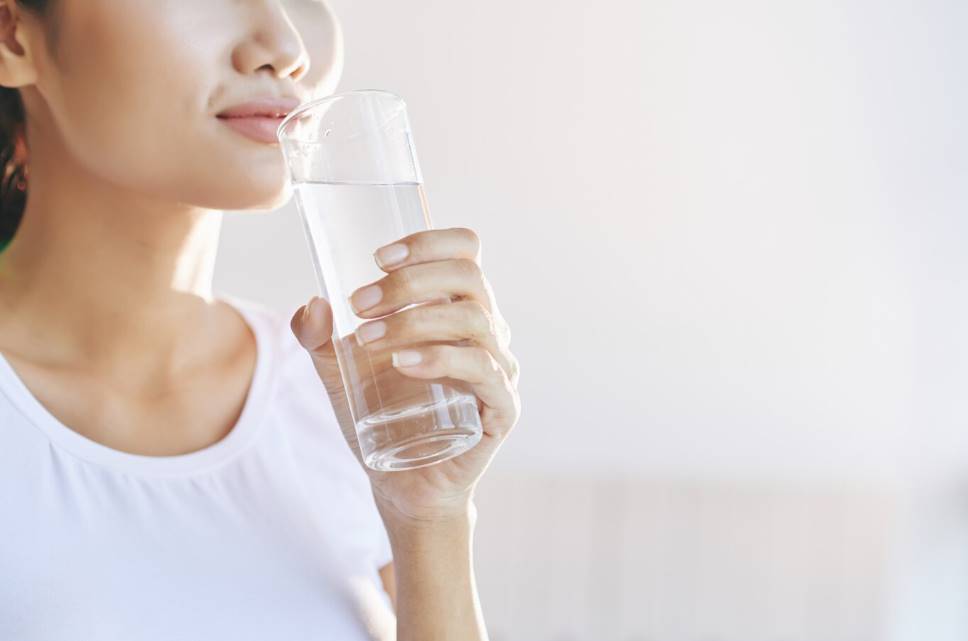
The first step is simple: increase your water intake. While it's common knowledge that we should consume eight glasses of water daily, surveys suggest that only about 12% of us do so.
If you're aware that you don't drink enough water, you need to make a change. First thing in the morning, have a glass or two of water. Now is when your body (and skin) needs more water the most. Then, accompany each meal and snack with a glass of water and finish the day with another glass.
Although it may be challenging initially, it can be overcome by making the water you drink more delightful. Incorporate antioxidant-rich fruits and herbs into your water for a tasty and healthy twist.
Consume Hydrating Foods
Getting enough water every day is crucial, and some of the items you eat can help you do that. Water content varies greatly among different foods. If you raise your intake, you'll notice a difference in the moisture level of your skin and whole body.
Lettuce, cucumbers, and celery are great additions to any diet. Watermelons, spinach, strawberries, mushrooms, and tomatoes all have a high water content.
Eat Nothing That Dehydrates The Body
Some components moisturise while others dehydrate, just like in skin care. Foods that should be limited or avoided include caffeine, alcohol, white sugar, and salt. They are manageable (though still harmful) when used in moderation. If you take them in large quantities, though, they may contribute significantly to your dehydration.
What Is The Difference Between Hydrating And Moisturising?
It's common practise to interchangeably use the words "moisturising" and "hydrating."
Moisturising is focused on the skin barrier itself. The water inside the cell is sealed off with the help of these goods. There are three main categories of ingredients in these products:
Humectants such as glycerine, hyaluronic acid, and urea attract moisture from the air and the dermal layers of the skin and deposit it in the stratum corneum.
Soybean oil, beeswax, and lanolin can keep moisture in. Shea butter, coconut oil, and colloidal oatmeal are all emollients that make the skin feel smoother and more supple. The lipid barrier is repaired, and water loss is prevented using the latest generation of moisturisers, which may contain ceramides or other substances. When properly hydrated, the skin's barrier is bypassed. Water is infused into the cells, which "plumps them up,". Many creams have chemicals that hydrate and moisturise, making it difficult to detect the difference.
Dehydration
When your skin is properly moisturised, you will notice it immediately. It will have a full, supple appearance and shine brightly. After all, your skin cells are soaking up all the water they need to perform at peak levels. However, issues arise when skin isn't properly hydrated,
Dry skin looks less healthy than hydrated skin. It will be boring to look at and may be too snug to wear comfortably. Itchy, flaky patches are a possible side effect. Even the tiniest creases and wrinkles stand out when the skin is dry.
Dehydration Vs Dryness
"Dehydrated skin" may be confusingly similar to "dry skin." However, there is a huge contrast between the two. Dry skin is characterised by an insufficient production of sebum, the skin's natural oil. This causes it to become dehydrated and unable to maintain its moisture levels. However, dehydrated skin does not have enough water to function properly. As opposed to being a permanent skin type, this is a short-term condition that can be treated. As you can see, the situation is still possible. You may not be giving your skin and body the hydration they need, but there is much you can do to improve the situation.
Conclusion
Hydration is crucial for skin health, as it helps maintain a protective barrier from the environment and prevents the entry of harmful chemicals and pollutants. The skin is the largest organ and is responsible for lipids that hold together the layers of skin cells, retaining moisture and blocking the entry of harmful chemicals. Adequately hydrated skin appears full and smooth, while dry skin can increase the risk of skin irritation and infection. Dehydration can exacerbate preexisting skin issues, such as eczema and acne.
The body's process of hydration involves urination and urine, which are the two primary ways the body removes excess water. Drinking water even when not thirsty is essential to avoid dehydration in strenuous activities or high temperatures. Mechanisms like aldosterone regulate the amount of water excreted in urine, which aids in maintaining hydration levels.
Hydration can help with skin problems such as acne, wrinkles, fine lines, dullness, and sagging skin. Properly hydrated skin can prevent these issues by preventing dead skin cells from accumulating in pores, resisting laxity and fine-line development, and reducing the appearance of sagging skin.
To keep your skin hydrated, choose hydrating skincare products with ingredients like sodium hyaluronate, ceramides, glycerine, panthenol, niacinamide, and olive oil. These components help the skin retain moisture, reduce inflammation, speed up the skin's natural healing process, and prevent hyperpigmentation and minimize oil production.
Maintaining a youthful appearance requires always keeping the skin well-hydrated, as well-hydrated skin looks fresh and firm for longer. By using the best products and practices, you can achieve a youthful appearance for years to come.
Avoid using beauty products containing drying ingredients, as they can dry out the skin and accelerate moisture loss. Instead, opt for milder solutions made from coconuts and contain humectants and amino acids to revive dry skin. Keep your skin safe from UV radiation by wearing broad-spectrum sunscreen with an SPF of at least 30 daily, especially in winter. Increase your water intake by drinking eight glasses of water daily, starting in the morning and continuing throughout the day. Incorporate antioxidant-rich fruits and herbs into your water for a healthy twist.
Consume hydrating foods like lettuce, cucumbers, celery, watermelons, spinach, strawberries, mushrooms, and tomatoes. Limit or avoid foods that dehydrate the body, such as caffeine, alcohol, white sugar, and salt. These components can be manageable when used in moderation but can contribute significantly to dehydration.
Moisturising is focused on sealing off the skin's barrier with ingredients like humectants, soybean oil, beeswax, and lanolin. Emollients like shea butter, coconut oil, and colloidal oatmeal make the skin feel smoother and more supple. The latest generation of moisturisers repair the skin's lipid barrier and prevent water loss.
Dehydrated skin is characterized by an insufficient production of sebum, the skin's natural oil, which causes it to become dehydrated and unable to maintain its moisture levels. However, dehydrated skin does not have enough water to function properly, making it a short-term condition that can be treated.
Content Summary
- Hydration plays a crucial role in maintaining skin health.
- Drinking water throughout the day can improve your skin's condition.
- Hydration and moisturising are two distinct skincare actions.
- The skin, being the body's largest organ, acts as a protective barrier.
- Skin lipids help retain moisture and block harmful environmental elements.
- Adequately hydrated skin has a smooth and full appearance.
- Dry skin can lead to irritations and increased infection risk.
- Dehydration can intensify existing skin problems.
- People with eczema may experience flare-ups due to dehydration.
- Dehydrated skin can result in more frequent acne breakouts.
- Fruits and vegetables with high water content contribute to skin hydration.
- Consuming a balanced diet can benefit both skin and overall health.
- Water constitutes approximately 60% of the human body.
- Every bodily function depends on water, including temperature regulation.
- Dehydration affects the body's efficiency in conducting vital processes.
- Thirst and urination are primary mechanisms for water balance.
- During activities or high temperatures, hydration is even more critical.
- Mechanisms like aldosterone help maintain the body's hydration levels.
- Hydration helps reduce skin problems such as acne and wrinkles.
- Dry skin can lead to the accumulation of dead skin cells in the pores.
- Proper hydration can minimise enlarged pores and acne.
- Hydrated skin can delay the onset of wrinkles and fine lines.
- Dry skin can accentuate dullness and diminish a rosy glow.
- Aging skin loses elasticity, but hydration can slow down this process.
- Topical hydration can provide faster benefits than internal hydration.
- Ingredients like Sodium Hyaluronate aid in skin hydration.
- Ceramides, diminishing with age, are vital for skin elasticity.
- Glycerine, a humectant, helps maintain skin hydration.
- Panthenol can reduce inflammation and support the skin's healing.
- Niacinamide (Vitamin B3) fortifies skin and aids moisture retention.
- Hydrogenated olive oil offers intense moisturising properties.
- For a youthful appearance, consistent skin hydration is essential.
- Avoid beauty products with ingredients that dry out the skin.
- Sulphates, parabens, and some alcohols can strip the skin's natural moisture.
- It's essential to protect the skin from harmful UV radiation.
- Daily sunscreen application, even in winter, is crucial for skin health.
- Increasing water intake can greatly improve skin hydration.
- Drinking water throughout the day is beneficial for skin hydration.
- Adding fruits to water can make hydration more enjoyable.
- Hydrating foods, like lettuce and watermelon, can aid skin moisture.
- Foods with high water content can benefit the skin's hydration levels.
- Consuming dehydrating foods and drinks in moderation is advisable.
- Excessive caffeine, alcohol, sugar, and salt can dehydrate the body.
- Limiting intake of dehydrating substances can benefit skin hydration.
- While hydration involves increasing water content, moisturising focuses on preventing water loss.
- Hydration is internal, while moisturising typically involves topical applications.
- It's essential to recognise the distinction for effective skincare.
- To maximise skin health, both hydration and moisturising are crucial.
- Finding the right balance of both can result in healthy, glowing skin.
- Proper skincare involves a combination of hydration, moisturising, and using the right products.
Frequently Asked Questions
Hydration can help improve skin elasticity, which can reduce the appearance of wrinkles and fine lines. Dehydrated skin is more prone to sunburn and other forms of UV damage. Hydration can help protect your skin from the sun's harmful rays. It can also help control oil production, reducing the likelihood of breakouts.
When you hear the word 'hydration', it's natural to think of water. Rightly so, hydrating your skin means increasing its water content. If your skin is dehydrated, it can appear flaky, dull and dry. Hydrated skin is smooth, radiant and has an even tone.
Healthy hydration gives your body plenty of fluid to sweat bad stuff out. In addition to removing waste, sweating helps you maintain a normal body temperature. How does it cool you off? Water leaves your body through pores, the moisture accumulating on your skin.
Dehydrated skin occurs because your body loses more water than it takes in. This can be caused by not drinking enough water or sweating too much, causing you to lose water. If your skin is dehydrated, you may notice itchiness, dullness, under-eye circles, sunken eyes, and more noticeable fine lines.
Ultraviolet exposure, aging, and low temperatures are among those factors that affect skin ceramide composition, potentially leading to increased transepidermal water loss and negatively impacting skin hydration. Vitamin C, collagen, and probiotics may increase ceramide production and improve skin hydration.
